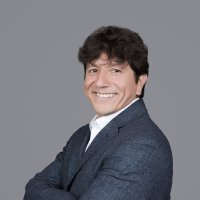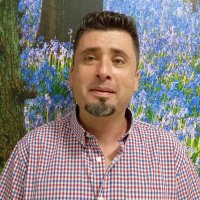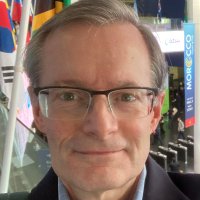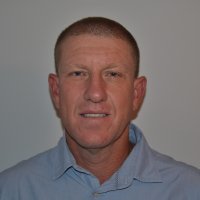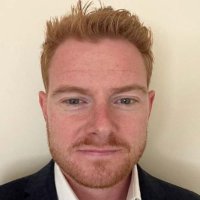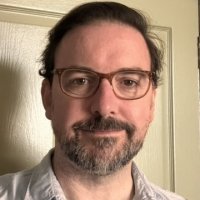The function of TAC, an objective-based group, representative from the seafood industry with sound knowledge of relevant norms, to manage technical matters relating to the development, revision, and implementation of the MarinTrust Assurance System as part of the Quality Management System (QMS), including the technical relevance and appropriateness as a third-party, accredited certification programme.
The current members of the MarinTrust Technical Assurance Committee are:
Francisco has worked for MarinTrust, the leading certification programme for marine ingredients, since its early development within IFFO (The Marine Ingredients Organisation). He became the CEO of MarinTrust in 2020. With over 15 years experience in the food sector, specialising in marine ingredients, Francisco has a unique understanding of responsible sourcing, sustainable production practices, and digital traceability in the marine ingredient supply chain. This expertise has led to him joining various boards and committees, including the Global Dialogue on Seafood Traceability (GDST) Supervisory Board and the Global Sustainable Seafood Initiative (GSSI) Steering Board. He also contributes to the Technical Committee which is shaping the GSA Seafood Processing Standard. Since 2014, Francisco has worked with fisheries across Southeast Asia, Latin America, Europe, Africa, and the Middle East through the MarinTrust Improver Programme – driving positive legislative changes in previously struggling fisheries. All of this is part of his broader mission to secure the future of marine ingredients as vital and sustainable sources of nutrition for the world.
Francisco holds a degree in Fisheries Engineering from UNALM (Peru) and a MSc in Marine Ecology and Environmental Management from Queen Mary University (London).
Dr. Jose Ignacio Llorente López holds a PhD in Biology from the University of Granada, Spain, along with a Master’s degree in Aquaculture. With over 20 years of experience, he has worked across various aquaculture systems and species, combining practical knowledge in production with a strong background in food safety.
Jose has contributed extensively to the certification sector, both as an auditor and in technical coordination roles. His experience spans a wide range of sustainability and environmental standards, including ASC, BAP, GLOBALG.A.P., EU Organic, Naturland, Biosuisse, GlobalG.A.P. CFM v3.0, and MarinTrust (formerly IFFO RS), covering production sites, feed manufacturing, and marine raw material sourcing. He has held technical positions at SAI Global (GlobalTrust), NSF, and LRQA.
In August 2024, Jose returned to GTC/NSF, where he currently serves as Aquaculture Technical Manager. In this role, he technically coordinates all aquaculture-related certification activities, including those linked to the supply chain such as MarinTrust. His work focuses on ensuring technical consistency, supporting audit teams, and maintaining alignment with scheme requirements.
Mr. Kevin Edwards is the Vice President, Global Market Development with the Global Dialogue on Seafood Traceability, a non-profit Foundation with a vision and mission focusing on the adoption and implementation of digital, interoperability traceability in wild-caught and aquaculture supply chains.
Mr. Edwards's experience in the audit and certification business sector occurred during his 19-year career with the SGS Group. Having received training in non-food, product inspections, factory quality and capacity audits, and corporate social responsibility, we worked for five years on client projects in the Americas and Asia. During that time, he co-authored their first supply chain security audit in the wake of the US Customs Trade Partnership Against Terrorism (C-TPAT) and participated in auditor training. He also led the Corporate Social Responsibility (CSR) technical working group (non-food) with SGS representatives from US, UK and Asia.
Mr. Edwards's experience in the Food sector began with second party GMP & HACCP Audits of factories exporting product for leading international brands and private label retailers. He represented SGS at Global Food Safety Initiative (GFSI) meetings and presented a session after his work with the US FDA and SGS audit teams in Vietnam, Thailand and Indonesia demonstrating the BRC-GS Food certification audits. Driven by the expanding interest within the food sector for corporate social responsibility monitoring of food harvesting and processing and having received additional SGS training in CSR and standards such as SMETA and BSCI, he worked on global projects primarily in the Fruit & Vegetable, and Seafood sectors. This work included the management of the GAA BAP scheme within SGS until additional colleagues were hired. He regularly attended the technical working group meetings.
Mr. Edwards was selected to represent SGS within the Seafood Task Force, and that work also included assessments of seafood and feed ingredient standards for gaps between them and other CSR tools. With one colleague at SGS, they developed SGS's own standard, checklist and training tools for auditors conducting fishing vessel audits.
James holds a BSc Agric. (HONS) in Animal Nutrition and completed his studies as an Animal Nutritionist in 1997. Since then, he has dedicated his career to this field. His professional journey began in South Africa, where he worked as a Dairy Advisor for a milk buyer. James then advanced his career by working as a Technical Advisor for various Compound Feed Manufacturing (CFM) companies. His responsibilities included formulating rations for ruminants, marketing finished feed to clients, and expanding market share for the CFMs.
After earning his MBA, he transitioned into managerial roles, leading a technical team for a premix company. For the last three years before joining GLOBALG.A.P., he managed a CFM, gaining valuable leadership experience. Currently, he is proud to be part of the exceptional team at GLOBALG.A.P., where he serves as the Senior Technical Expert Feed.
James has extensive experience in quality management systems (QMS) and assurance systems across multiple companies. At Parmalat, he developed and implemented procedures for milk producers to meet factory quality requirements. At Molatek, Meadow & De Heus, he sold products based on robust QMS and addressed quality issues by liaising with the factory and conducting sample analyses.
At 4 Mix International, he managed a calf/lamb milk powder manufacturing plant, ensuring compliance with QMS and investigating performance issues. Managing a Compound Feed Manufacturing facility at The Coop, he ensured adherence to ISO standards and participated in annual audits.
Currently, at FoodPLUS, he oversees the Compound Feed Manufacturing standard, advocating for the implementation of quality management systems in CFMs. This breadth of experience underlines his capability in QMS development and assurance.
Niall O'Rahelly is a Marine Biologist with a Bachelor of Science Degree in Applied Ecology and over 16 years of expertise across aquaculture, seafood certification, project management and seafood production. He holds additional qualifications, including an Diploma in Leadership and Management and specialised training in seafood certification standards.
Currently serving as the Irish Shellfish Environmental Manager at the Sea Fisheries Protection Authority (SFPA), Niall manages the Irish sanitary survey programme, engages with stakeholders, and represents the SFPA at national and international forums. Prior to this role, he was instrumental in building Ireland's aquaculture innovation ecosystem as Ireland’s Aquaculture Community Manager with HATCH, collaborating with Irish seafood stakeholders to drive investment and innovation in the
marine sector.
Niall has also managed technical and certification programmes at SAI Global and held senior roles at the Centre for Environment, Fisheries and Aquaculture Science (CEFAS). His career began with hands-on roles in fishing and aquaculture production in Ireland and Australia.
Billy Hynes is the Senior Assurance Manager at the Marine Stewardship Council and has worked in regulated and accredited areas going back almost 20 years.
He has worked in various roles including MSC Scheme Manager for LRQA and project management at LRQA implementing food safety programs for Mondelez and Mars among others. At the MSC Billy led the revision of the MSC’s objection process aimed at reducing costs and time to participants, oversees the GSSI benchmarking, has navigated the accreditation process for ISO 17065, and has participated in multiple standard document reviews.
Billy’s strengths in sustainability standards are a broad understanding of stakeholders, a focus on clear language in standard writing and the auditability of those standards, and scheme integrity.

